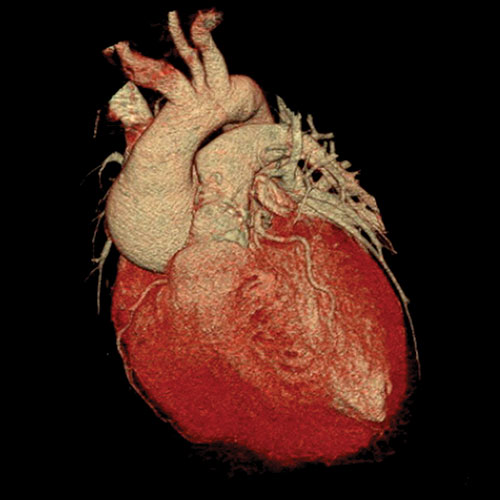Coronary Calcium Score
Heart disease is the nation’s leading cause of death, and unfortunately, many do not find out they have heart disease until it’s too late!
The coronary calcium score is a fast, safe, and easy CT scan of the heart. It’s the only widely used non-invasive screening test that can accurately detect—or rule out—the presence of coronary artery atherosclerosis in otherwise healthy individuals. The test uses advanced low-dose CT imaging and special software to detect the presence of calcified plaque in the coronary arteries, which is an indicator of how likely you are to have underlying heart disease that can lead to heart attacks.
A Heart Scan is not covered by most insurance companies, but is affordable at Imaging Healthcare Specialists for just $175.
If you have high blood cholesterol, a family history of heart attacks, diabetes, smoke cigarettes or are overweight this may be recommended by your physician. We offer our Heart Scan service at our La Jolla and Oceanside locations.

Frequently Asked Questions
Why is Your Coronary Calcium Score Important?
Knowing your coronary calcium score is important because it shows any signs of heart disease like atherosclerosis (the hardening of arteries), which can lead to a heart attack. This number also helps predict the likeliness of future cardiovascular issues.
How is Your Coronary Calcium Score Determined?
Through the scans mentioned above, your calcium coronary score is calculated through advanced low-dose CT imaging and medical programs that determine calcified plaque in the coronary arteries.
What Age Should I Get Scanned?
It is wise for anyone 50 years or older, and then follow the recommendations of their physician.
How Often Should I Get My Coronary Calcium Score Checked?
People with a family history of heart disease, or individuals with risk factors of heart disease like high blood pressure, high cholesterol, diabetes, and smokers are strongly advised to schedule an exam.
Who Should Prioritize Getting Coronary Calcium Scans?
It is recommended to get your coronary calcium score scanned every 3-5 years. Some low-risk patients may be able to stretch it to 5-7 years, while higher-risk patients should be proactive and get scanned every three years.
What are the benefits of the calcium score test?
Traditional risk factor analysis (based on cholesterol, blood pressure and risk assessment tests) has failed millions of Americans. In fact, for more than 100,000 Americans every year, a fatal heart attack is their first and only sign of heart disease.
The calcium score has shown to be the best technology available to detect early stage heart disease, superior to cholesterol, blood and stress tests. It is used at the nation’s leading cardiology centers, including UCLA, Johns Hopkins and the Mayo Clinic.
What are the drawbacks to the calcium score test?
Risks are low and the benefits generally outweigh them. The risks include radiation exposure (in low amounts), and the possibility that the calcium score may lead to other testing, which may or may not provide results with clinical value.
How Long Does the Scan Take?
The CT scan itself takes about ten minutes, but from start to finish, you should budget about 30 minutes in total
